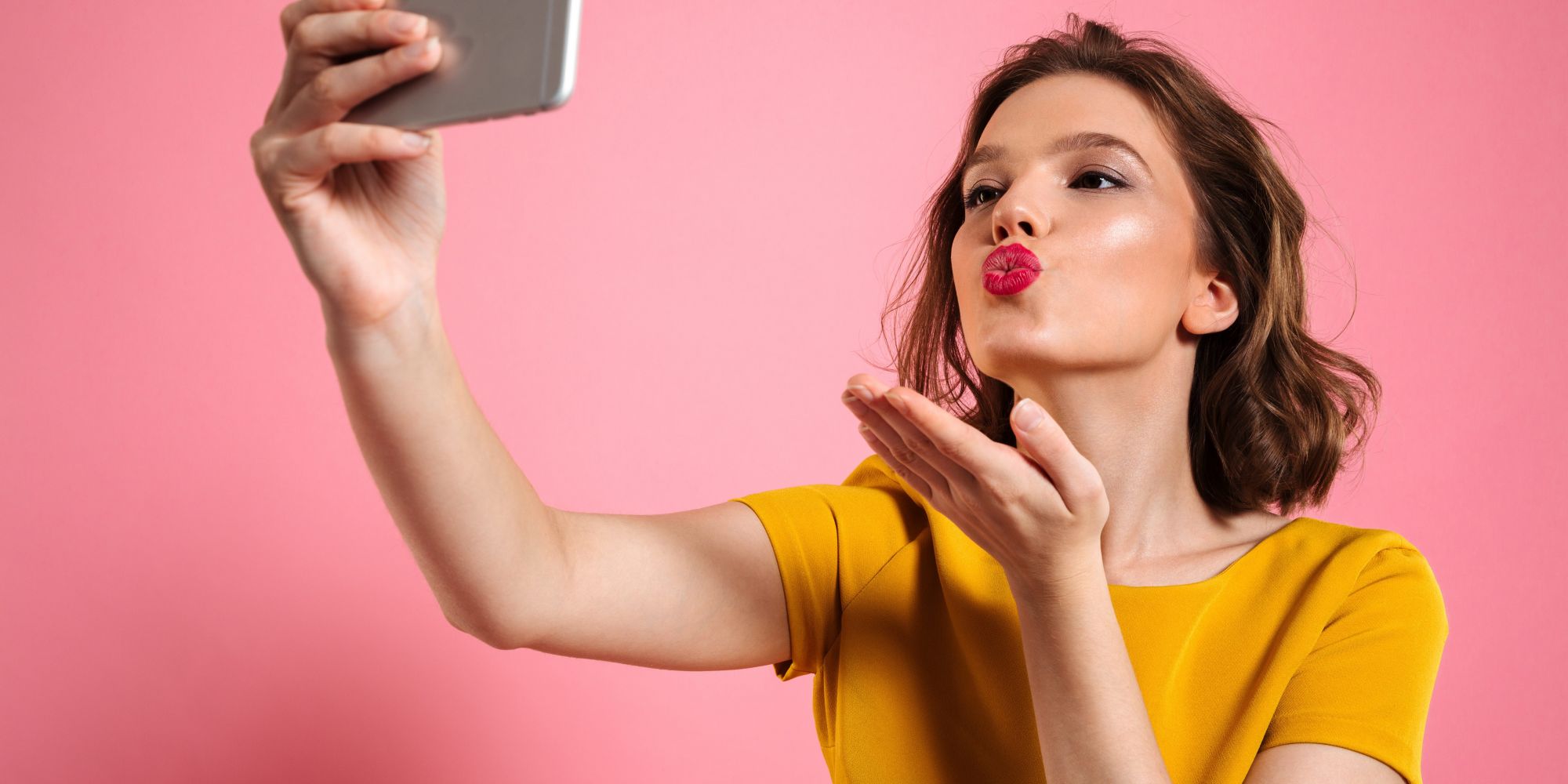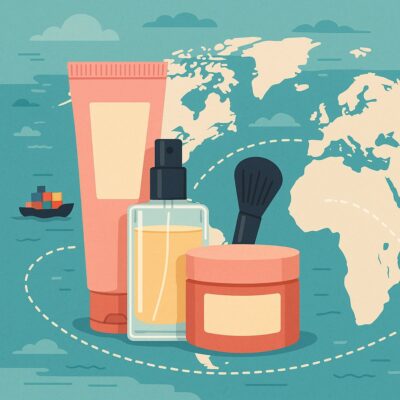
The Power Of The Plug: How Brands Find Digital Influencers
In this edition of Beauty Independent’s ongoing series posing questions to beauty entrepreneurs, we ask 17 founders and executives: How do you develop relationships with digital influencers?
- Kate Lee Founder, Velvet
When I started my brand, I knew that I wanted to get the social media community involved. We do it in two ways. First, my team and I try to find individuals who embody our brand's fun and female-empowered beauty philosophy. I was lucky enough to already know many of these people through my own personal interactions within the Instagram skincare community, so these relationships were formed naturally and grew organically just through similar interests.
The second strategy is having our own influencer program where anybody can apply to join through our website. We select a handful of people each month to join, and they receive our marketing campaigns and upcoming promotions in exchange for free products and being the first in line to try out the new things we release. Where the digital influencers we seek out aren't necessarily required to create content for us on an ongoing basis or even at all, the influencers who join our own internal program get an incentive to post continuously.
The most important reason we tap into digital influencers is not just to raise brand awareness, but to get to know our customers better. We want to know what they like and don't like from product reviews to packaging to operations. The beautiful content and brand promotion we get in return is just a great bonus.
- Jaz Fenton Founder, Yellow Beauty
Our marketing strategy started out solely on Instagram. Bootstrapping the business meant that I had to be really careful where and how I spent my money. Nurturing online relationships was a key factor to YLLO's success since it didn't require any extra capital, just time.
I started by reaching out to micro-influencers, offering them free product in exchange for an honest review on their profile. This influx in social proof was a huge catalyst for post-launch sales. Two years later, micro-influencers are still my go-to when marketing on Instagram.
Now, more than ever, with so many paid promotions saturating social media, it's becoming much harder to know who to trust. Micro-influencers aren't paid huge sums for their posts, which keeps them impartial, resulting in a much more engaged and loyal following.
- Alexandra Nodes Founder, Alex Carro
We have worked with digital influencers since the beginning. In forming those relationships, it is super important to have shared values. We are based in Barcelona and many of the influencers we work with in Spain I have met personally. There is nothing like face-to-face meetings to build relationships, and explain the ethos and the Alex Carro range.
On the other hand, where that is not possible, we take our time to explain what we are looking for and build a relationship online. We love connecting with people from all over the world. In many cases, we work with influencers again and again. This allows the relationship to develop and deepen and, as with most relationships, it gets better over time.
- Dina Davis Queen Bee, No B.S.
These days, spending money on traditional online ads can only get you so far. In 2018, people go for authenticity and prefer to make purchases based off recommendations. That’s why using influencers is so important to our marketing strategy. We recently launched a campaign on a platform called Mavrck.
Using a third-party tool, company, or event like IBE is a great way to bring influencers and brands together while cutting through all of the noise so new companies like No B.S. can actually get recognized and picked up. We simply send complimentary products to influencers that meet our criteria and once they receive it, they use it, document it through photos or videos, and share it with their followers on social media.
It is important to not only chose influencers by how much of a following they have, but to make sure they align with what your company’s philosophies are. Now that a few influencers have already shared our products, we are getting emails from other influencers that saw our products and want to join the #LiveNoBS movement. Once you start, it grows organically rather quickly.
- Julie Fredrickson CEO and Co-Founder, Stowaway
While many brands look to influencers that have built their living on acquiring a large audience online, we know that all women have relationships with their friends and family that can be communicated online to their own circle of influence.
We form deep relationships with our customers through multiple touch points including direct communication with our team, packaging inserts for them to understand the breadth of our values, and being transparent with every single customer. We go above and beyond for them and have found through their comments to us and NPS sampling that this makes a huge difference in them advocating for us to their friends as a brand they recommend online and offline.
The one crucial digital influencing technique we use is referral and loyalty opportunities for them to share free products with their friends easily via an online portal unique to our customers that we also share with them offline through branded inserts, as we know most women cite their friends as having the most impact on their purchasing decisions. We see this as the merging of online distribution and offline relationships into a true omnichannel brand relationship.
- Yoshiko Roth-Hidalgo Co-Founder, Juara
We’ve been lucky that editors, bloggers and other digital influencers mostly come to us. We’ve also been working with an excellent publicist for several years who really knows and loves the brand and is very well connected to key beauty influencers.
We actually believe that the boundaries between influencers, customers and sellers has become blurred and continues to do so. Because of that, we have decided to change our distribution strategy to a social selling model. It is now possible for an individual customer to also sell Juara to their circle of influence and get rewarded financially. This means that a beauty influencer may discover us as a customer, fall in love with the products and decide to sell them, or a customer may become a seller and in the process become a key influencer for the brand.
- Leila Kashani CEO, Sphynx
When we first started using influencers, we built relationships with them through a third-party platform. We created campaigns and influencers then reached out to us if they were interested in a specific one. From there, relationships were formed.
As we grew and learned more about digital influencers, we moved on from third-party platforms and, now, handle all influencer outreach internally. We go through intense research to find influencers on Instagram and YouTube that best fit our brand.
After collecting a list of potential influencers, we email them with campaign details and, from there, we come to an agreement on content that will work best for their audience. With this technique, we’re able to form mutually trusted relationships where we trust they will portray our brand and product in the best way possible. In return, they trust we will provide them with everything they need to create a successful post.
- Serena Rogers Founder, Cūrata Sustainable Luxury
As we prepare to launch Cūrata, influencers have been a point of discussion while developing our marketing plan. Initially, paid influencers seemed a natural route. However, after further research and consulting with digital strategists, we’ve decided a more authentic avenue is better aligned with our vision.
For a niche, sustainable luxury beauty brand like ours, paid influencers with large followings can be expensive without necessarily delivering significant impact, particularly if engagement is low. We would rather nurture relationships with like-minded micro-influencers who love our products not for pay, but for passion.
In our partner search, we’re looking at content, collaborations and conscious ideals that match our own, plus genuine engagement. We want to avoid working with influencers who collaborate with too many competing or conflicting brands. Cūrata’s value lies very much in our values and we think the results will, quite literally, speak for themselves through real word-of-mouth.
- Monica Watson Founder, Berlin Skin
It's been a bit of trial and error in working with influencers, and we've found that the most successful relationships and campaigns are with influencers who are already super fans. Many of them are spreading the news through word of mouth or Instagram, and our partnership is just an extension of their passion for the products. For us, as a new brand, awareness is everything. We know we have a great product. We just want to get it in more people's hands.
The majority of our introductions to influencers have been through them reaching out to us first. We do our research on their audience, engagement and if they have a blog with relevant content. Someone may have a lot of followers and, at first glance, look great on paper, but the quality of their audience and content is more important to us than a lot of followers.
Lastly, it's important that the influencer writes honestly and from the heart. People can see right through sponsored content that isn't genuine. More and more, the audience wants to be able to trust the people they follow, and they'll engage when they see a testimonial that's honest. Overall, the power of digital influencers can't be ignored for a brand who wants to stay relevant, but choosing the right relationships is key.
- JoAnn Fowler Founder, Sappho New Paradigm
When we first started to use digital marketing, we soon realized that we needed to put our product into the hands of bloggers and vloggers who were interested in green beauty. It was important that our mandate to deliver clean non-toxic products be supported by the influencers we work with.
Originally, when a request came in, I would send out a fact sheet about our products, and let the influencer know that, after reading the literature, if they were still interested in reviewing our products, we would gladly send them some. To this day, we have not paid for digital influencers. Not because we disagree with the practice, but because we are a small, independent, bootstrapping company, and we have not had the resources to pay for digital influencers. The bulk of our resources have gone into ingredients, sustainable packaging and manufacturing with little left over for marketing. So, it is always terrific when we co-op with likeminded groups.
We recently started an affiliate program and, at this juncture, we seek out collaborative ventures with micro-influencers, feminist groups, nutritionists, other green beauty companies, etc., to review our products, thereby supporting each other’s businesses. We also work with Catwalk PR, which helps us with introductions to media influencers and also how to decide which are most relevant for our customers.
Lately, some of our larger retailers have been sending product to influencers that do not specialize in green beauty. Although this has definitely given us exposure, we feel there is still lots of work to be done on a grassroots level to educate the world about the need for clean non-toxic products and companies who stand behind their claims.
- Catkin Bodmer Founder, BRYT Skincare
As a small, independent beauty brand, we understand the importance of digital influencers and have been working with them increasingly over the last two years. Digital influencers offer a creative and interesting way of reaching a real and receptive target audience and have proven to be a more efficient means of raising brand awareness against, for example, paid advertising.
For us, the most important thing is to identify influencers that echo our brand values and that is something that can take time. A lot of people approach us offering to create blogs or video content promoting our brand, but 70% of the time they aren't the right fit or simply don't share our vision. Whether you're paying for content or not, it has to be a good match for your brand so we invest a lot of time researching the platforms that are authentic, creative and, above all, in tune with the BRYT Skincare ethos.
Our influencer network has been developed from a variety of sources: trade and consumer shows, industry events and talks, workshops that we've attended, blogger events and direct approaches we've made to influencers we know, love and want to work with. Twitter and Instagram are good platforms for us and allow us to engage with like-minded influencers who are focused on ethical, natural and vegan products. As an independent business, budget is key so we'll continue to do things in the best way for us, simply talking about the brand as much as possible and identifying great quality influencers who really get what we're all about.
- James H. La Founder, NIUCOCO
We have used digital influencers in the past and have been watching the evolution of this approach to marketing. It really depends at what stage of the business you are in and how to effectively leverage digital influencers.
The key thing is to understand your objectives and how digital influencers can communicate that properly. If you don’t, then it will be a challenging exercise to figure out which ones best reflect your brand. The most visible ones may not be the most pertinent ones. Taking the time to understand and communicate your brand’s needs before engaging the digital influencer world will save you a lot of time and allow you to measure and adjust accordingly.
Since our launch, our connections with influencers vary from agencies that curate them based on our selection criteria, those that we hand pick to contact, and some that send us inquiries directly. As a brand, we still hold the right to pick who we want to have representing and reviewing our products.
- Rebecca Monoshevich Founder, Secret Service Beauty
We have worked with many digital influencers to market our brand. Our strategy has been forming relationships through sending direct messages on social media, utilizing personal relationships through friends and direct emails.
Most importantly, utilize personal relationships you already have to the maximum capacity. Those are the people who believe in your brand and want to help you win. We have been able to leverage our client relationships to partner with different influencers, not only for the greater good of marketing our brand, but also to make it known amongst the top circles in L.A. through word of mouth, leading to posts going up organically.
The more you utilize the relationships you make naturally, the faster people will notice your brand and, in turn, influencers will be more likely to help market your brand without even knowing they are doing it.
We have also been in contact with PR companies to establish relationships with influencers, but this comes at a much higher cost, and you should have a whole marketing budget set aside. Going this route, you can get your products posted through big influencers, but remember this comes at a very high cost and there is no guarantee you will get a return on your investment.
- Nicole Crockett Founder, pureSOL
We work mainly with micro-influencers, and our relationships started pretty organically, all through Instagram. We’ve worked with influencers that have reached out to us and vice versa. It’s been a good route for us to explore since our hero product, the konjac sponge, is still relatively niche and unknown in the States. Influencers have certainly helped with brand and product awareness.
- Dara Levy Founder, Dermaflash
We are very generous with gifting product samples and curate first-class events on both coasts to build those relationships. We also love pampering celebrity makeup artists. They are the unsung heroes of the industry and always do so much for others, so we’ll often treat them to a nice dinner party so they can get to know Dermaflash, which is the perfect staple in every makeup artist’s kit. We believe in paying it forward when building meaningful relationships with our media and influencer friends, and are thrilled with the organic results.
- Shilpi Chhotray Founder, Samudra Skin & Sea
We have always been more than skincare. It's a social enterprise set out to change our world and our brand ambassadors represent just that. The women we select to represent Samudra's mission – connecting the dots between personal wellness and ecological integrity – all have a deep connection to our planets finite resources in their own authentic way.
From a National Geographic submarine pilot to a seaweed artist and author, we are part of a community that believes smart and driven women deserve a place to revel and nerd out, if you will. Our typical customer does not identify with the beauty blogger pushing product and, instead, seeks values-driven marketing. This is where our influencers come in.
- Kellie Chen Co-Founder, Fytt Beauty
Through various campaigns and events, we seek to not only convey our brand story, but also hopefully impart a bit of Fytt inspiration to encourage others to live a healthy and active lifestyle. We partner with likeminded brands and influencers whom we believe embody the Fytt mission of achieving healthy by making fitness and wellness a way of life. As the voice of our brand, these are individuals who genuinely love our product and understand our Fytt philosophy. Fostering an ongoing relationship with these individuals is key.
If you have a question you’d like Beauty Independent to ask beauty entrepreneurs, please send it to editor@beautyindependent.com.






https://www.antonymcosmetics.com